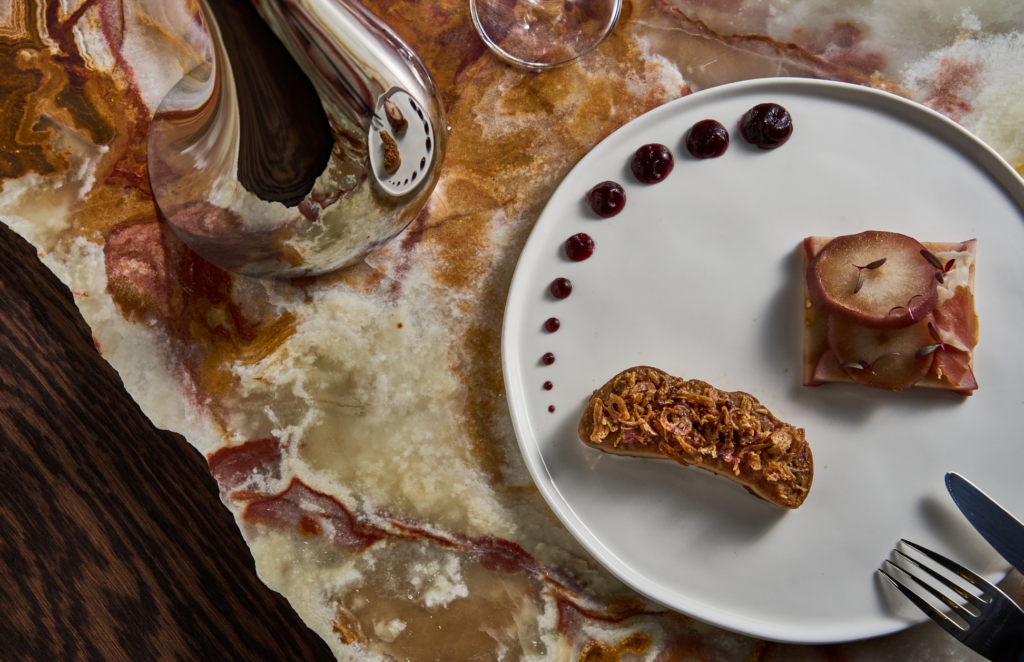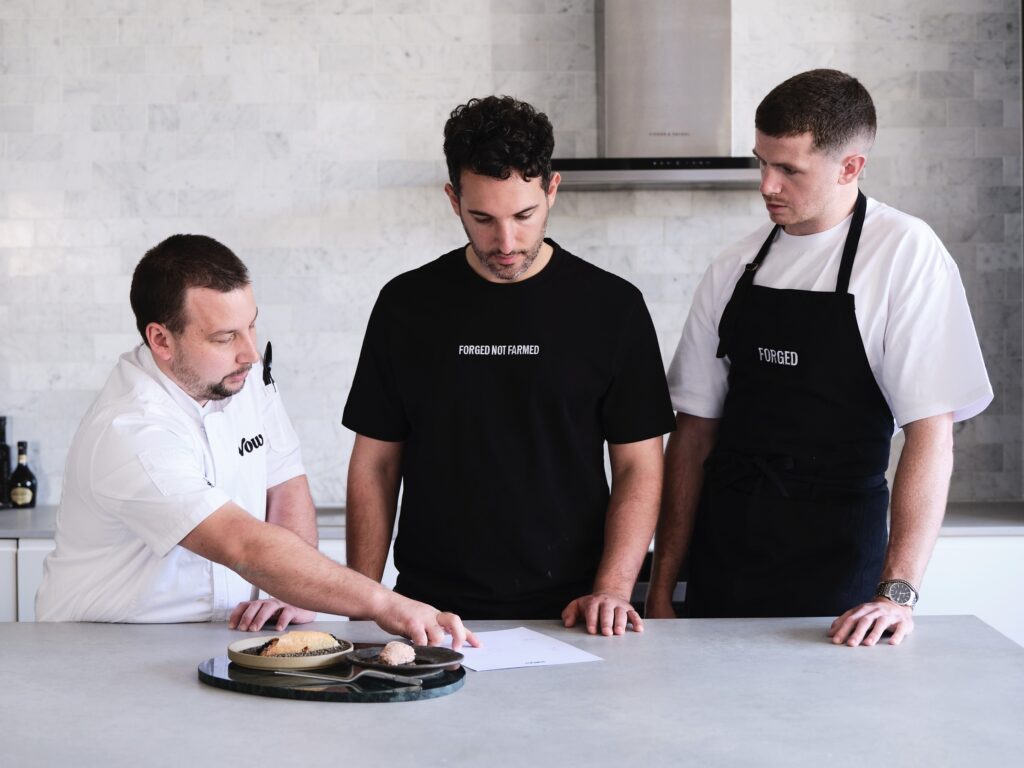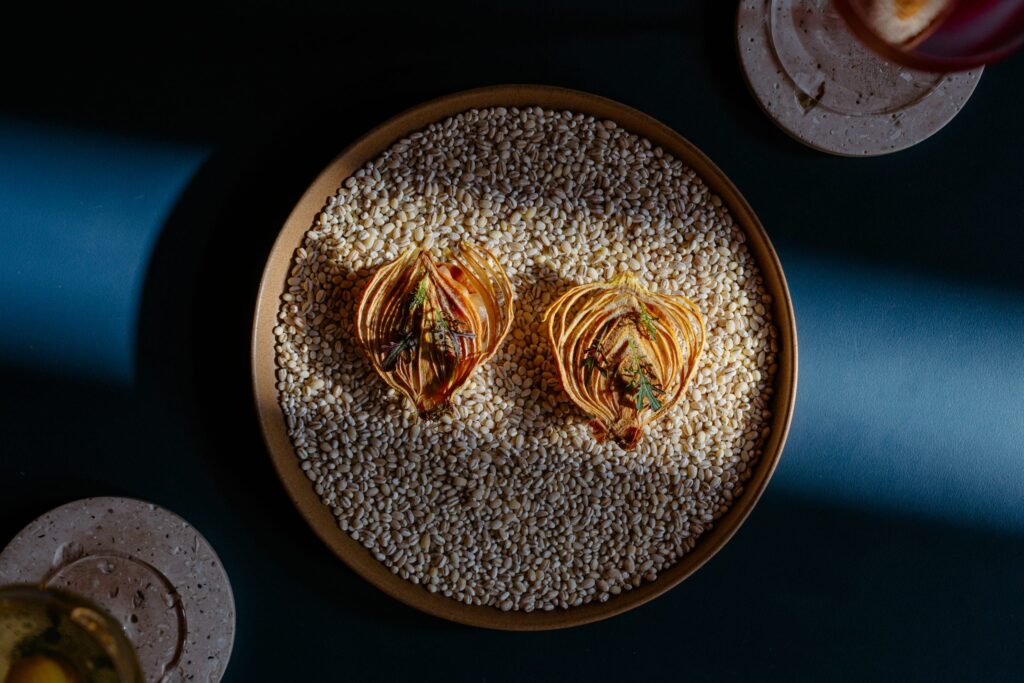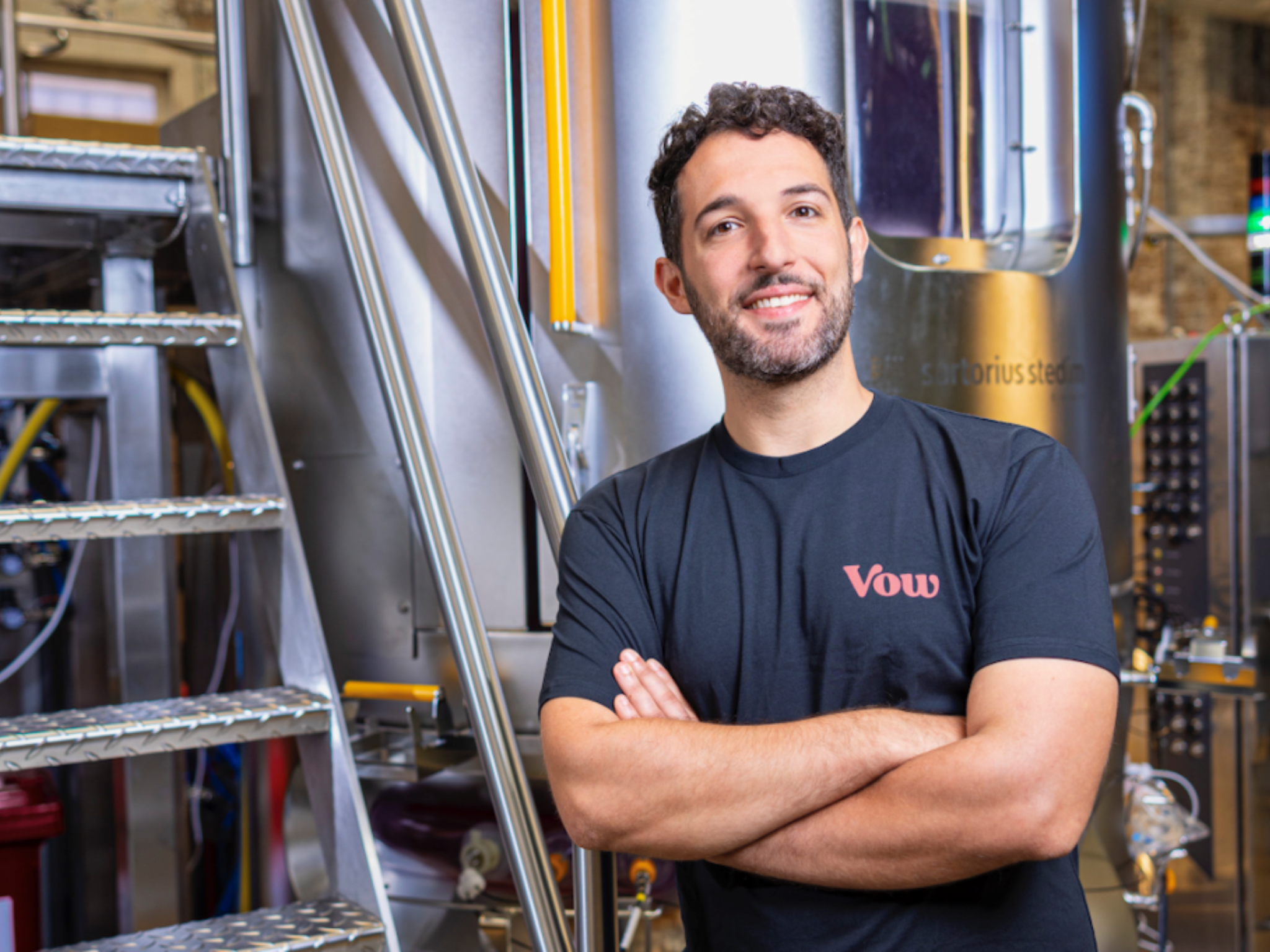7 Mins Read
Known for its cultured quail, Sydney-based Vow has received regulatory approval from Food Standards Australia New Zealand, a first for cultivated meat in the region.
Australian food tech startup Vow has become the first startup to receive regulatory clearance for cultivated meat in at least three geographies.
The Sydney company has received the green light from Food Standards Australia New Zealand (FSANZ), the joint regulator for the Antipodean nations, for its cultured quail, according to an approval report dated today (April 7, 2025) uploaded to the regulator’s website. It is now subject to ministerial approval.
It ends a protracted process that started in early 2023 and involved two rounds of public consultation, during which Vow succeeded in getting regulatory clearance to sell the cultivated meat product in Singapore and by extension, Hong Kong (the latter does not have its own regulatory process for novel foods, but relied on approval Singapore under a framework of international cooperation).
In an interview with Green Queen last year, Vow co-founder and CEO George Peppou had predicted that the company would receive approval in Q1 2025, and that prophecy rang true, with the FSANZ approving the application on March 27 and notifying the Food Ministers’ Meeting of its decision today.
“Today, the Australia-New Zealand food regulatory body FSANZ announced that its board had finalized the food code changes required for Vow’s cultured meat to come to market,” a Vow spokesperson told Green Queen.
“However, before these changes are officially made to the food code, there is a 60-day period for Food Ministers from across ANZ to review these changes. As a result, Vow is hoping for the process to be fully complete sometime in June,” they added.
Asked about Vow’s market plans after the 60-day review, Peppou revealed: “We plan to launch on our home turf in Australia, like we did in Singapore, where we’ve been selling and serving consistently for over a year. Expect to see us work with high-end restaurants and elevated fast-casual concepts first, followed by retail partnerships later in the year.”
In its assessment, the food safety agency noted: “FSANZ conducted a full and independent evidence-based assessment of all media inputs and was satisfied their use and/or presence did not raise any safety concerns.”
Bianca Lê, founder of Cellular Agriculture Australia, called it a “huge win for Vow, for consumers across Australia and New Zealand, and for the future of food globally”.
“Transparent, science-based regulation is exactly what’s needed to support responsible innovation in the food system,” she told Green Queen. “This approval not only validates years of hard work across the sector, but also gives real momentum to attract global investment and accelerate the commercialisation of novel food technologies.”
Simon Eassom, CEO of Food Frontier, labelled Vow a “trailblazer” in the industry. “George Peppou’s strategy of introducing Vow’s Japanese Quail parfait to the Singapore market first and enabling some commercial return and customer feedback has no doubt helped the organisation through challenging financial times and prepared it well for launch into Australia,” he told Green Queen. “Any company that comes after this will owe a huge debt of gratitude to George and the team for unlocking the path through FSANZ’s regulatory process.”

What the FSANZ said about Vow’s cultured quail application
Vow submitted its dossier in February 2023, seeking permission to use “cultured quail cells, derived from embryonic fibroblasts of Japanese quail, as a novel food ingredient” in Australia and New Zealand.
FSANZ issued a call for public comments in December 2023 and another 12 months later. The second round received 22 responses, with each submission considered as part of the agency’s assessment of the cultured quail cells.
The food safety body noted that “cell line suppliers already operate according to good laboratory practices (GLP) and good cell-culturing practices (GCCP) to manage risks”, and therefore, the overall food safety risk for cell lines is “very low”. It added that cell line suppliers aren’t expressly required to ensure that “inputs do not make cell-cultured food unsafe or unsuitable”.
It added: “At the estimated consumption levels, there were no toxicological concerns related to the cell media or inputs used in the production process.”
FSANZ further noted that cultivated meat cannot be included in “special purpose foods” like sports foods, infant formula, or food for special medical purposes without additional pre-market assessments.
One public comment brought forward the question of whether cultivated meat products should be categorized as ultra-processed and the “adverse health outcomes” they’re linked to. In response, the FSANZ said the issue of UPFs is beyond the scope of the application.

“The nutrition risk assessment considered the macronutrient and micronutrient content of harvested cells including components introduced during the production process and found no nutritional concerns,” it concluded, adding that the harvested cells were unlikely to pose a food allergenicity risk.
FSANZ confirmed that Vow did not request that its cultured quail be sold as a single ingredient in retail. Instead, it will be mixed with other ingredients – as is the norm for cultivated meat, including Vow’s – to produce dishes in restaurants and foodservice establishments, and end products for supermarkets.
Addressing concerns about the high costs of cultivated meat and its impact on farmers, the FSANZ suggested that “certain industry costs and regulator costs are necessary to ensure safety and are unlikely to outweigh overall benefits to industry, consumers and government”.
The assessment’s outlook on the potential for cultivated meat is encouraging for the industry at large: “The consideration of costs and benefits acknowledges that cell-cultured foods are in their infancy with uncertain market growth. That takes into consideration the currently high production costs and uncertainty of the future speed or extent of technology developments for reducing production costs.”
A huge win for cultivated meat amid global challenges
This is a big win for Vow and the cultivated meat sector as a whole, which has been embattled of late due to funding and geopolitical challenges. Private investment in cultivated meat startups fell by 75% in 2023 and another 40% in 2024.
Cultivated meat has faced numerous cultural and political challenges of late. Italy prohibited the production and sale of cultivated meat in 2023. In the US, over 20 states have attempted to ban these proteins, and three have been successful. With Donald Trump as president and Robert F Kennedy Jr as health secretary, regulatory progress for cultivated meat looks uncertain – although the US did issue its third initial approval, for cultivated pork fat by San Francisco-based Mission Barns, last month.
Still, the future of the sector remains murky in the US, and that has opened up opportunities for other countries to emerge as leaders. Singapore is already at the forefront, having been the first to approve cultivated meat back in 2020, and following it up with its green light for Vow last year.

Other leaders could include Israel, which approved its homegrown cultivated beef maker Aleph Farms, and the UK, which has just opened a regulatory sandbox for a select group of cultivated startups. Experts believe South Korea could grant an approval this year as well, while regulators in the EU, Switzerland, and Thailand are evaluating applications. With the Vow approval, Australia and New Zealand are well-positioned to be key players in the field.
The FSANZ approval comes weeks after Vow cut back 30% of its workforce, a decision Peppou described as coming from a “position of strength as the industry leader, not a position of weakness”.
“However, given the complexity and novelty of the regulatory process for cultured meat, it has taken far longer than initially expected to secure regulatory approval in the markets which Vow has targeted,” he said at the time. “This is not a criticism of the regulators, but rather an acknowledgement of the care and thoroughness necessary to ensure cultured meat is completely safe for human consumption and regulated appropriately.
The company, which also makes cultured foie gras, is currently selling its products at various restaurants and bakeries in Singapore through its Forged brand, with rave reviews from tasters. One of them told Green Queen: “What stood out to me was that it was genuinely delicious.”
And just last week, the company claimed to have broken a world record by harvesting 20,000 litres of cell culture through its Andromeda bioreactor.
Vow – which went viral and appeared on The Late Show with Stephen Colbert for its woolly mammoth meatball stunt in 2023 – has secured $55M from investors to date, commercialising with a smaller outlay than competitors that have received approval, including Upside Foods ($608M), Eat Just ($270M), Aleph Farms ($147M), and Mission Barns ($60M).
This story was updated to include quotes from Vow, Bianca Lê, and Simon Eassom.



